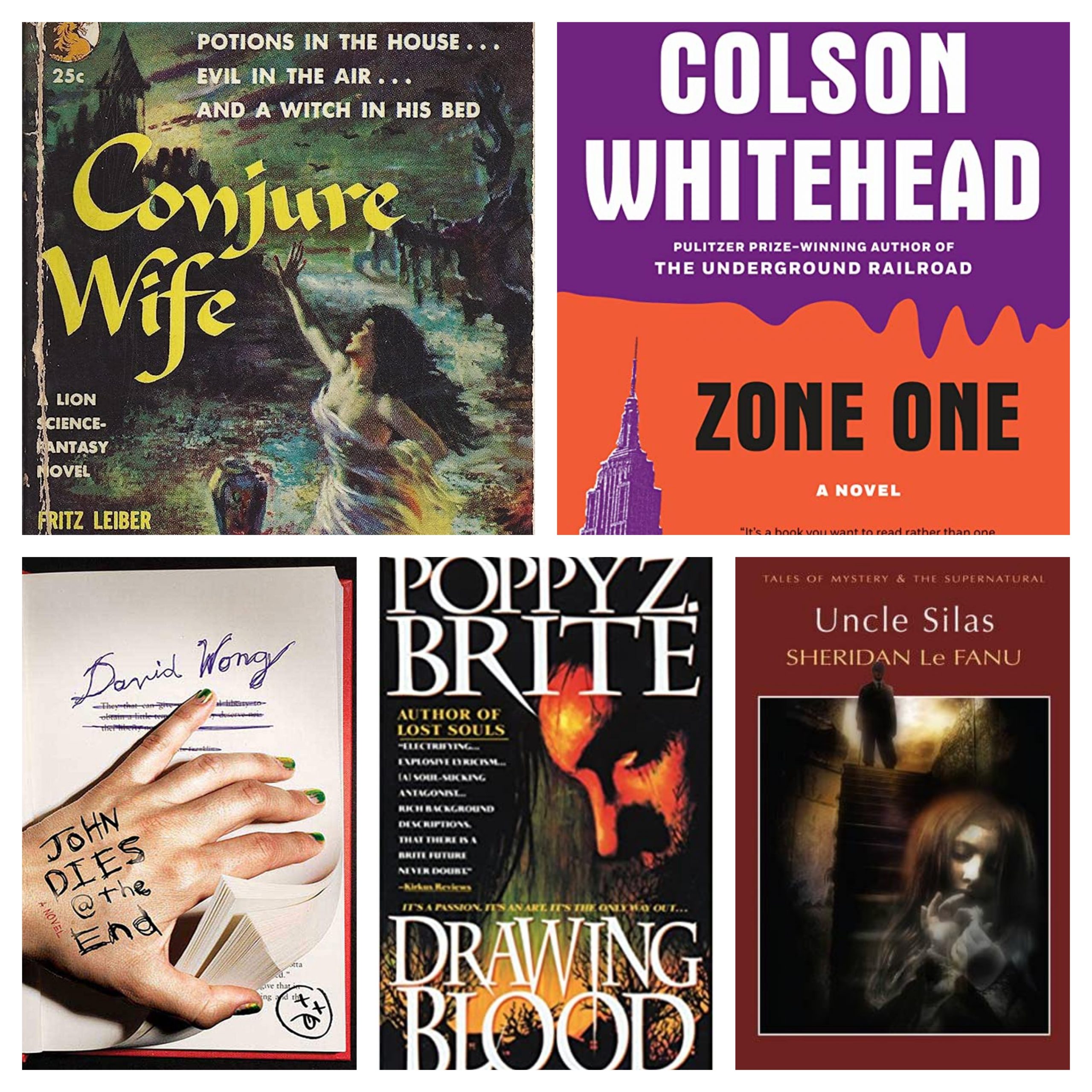Been a hot minute since I’ve posted one of these, so I figured it’s past time to let folks know what I’ve been consuming. This time I’ve got a witchy classic, a literary zombie tale, a pop culture frenzy of craziness, a dark and twisted haunted house story and a Victorian gothic tale of murder. This stuff ain’t gonna read itself so let’s go!
For those just joining me, this is my journey through the following “Best of” Horror lists:
Reedsy Discovery Best Horror Books
Stephen Jones & Kim Newman’s Horror: 100 Best Books
Stephen Jones & Kim Newman Horror: Another 100 Books
If you want to check out my previous entries, they can be found here:
Part 37 | Part 36 | Part 35 | Part 34 | Part 33 | Part 32 | Part 31 | Part 30 | Part 29 | Part 28 | Part 27 | Part 26 | Part 25 | Part 24 | Part 23 | Part 22 | Part 21 | Part 20 | Part 19 | Part 18 | Part 17 | Part 16 | Part 15 | Part 14 | Part 13 | Part 12 | Part 11 | Part 10 | Part 9 | Part 8 | Part 7 | Part 6 |Part 5 | Part 4 | Part 3 | Part 2 | Part 1
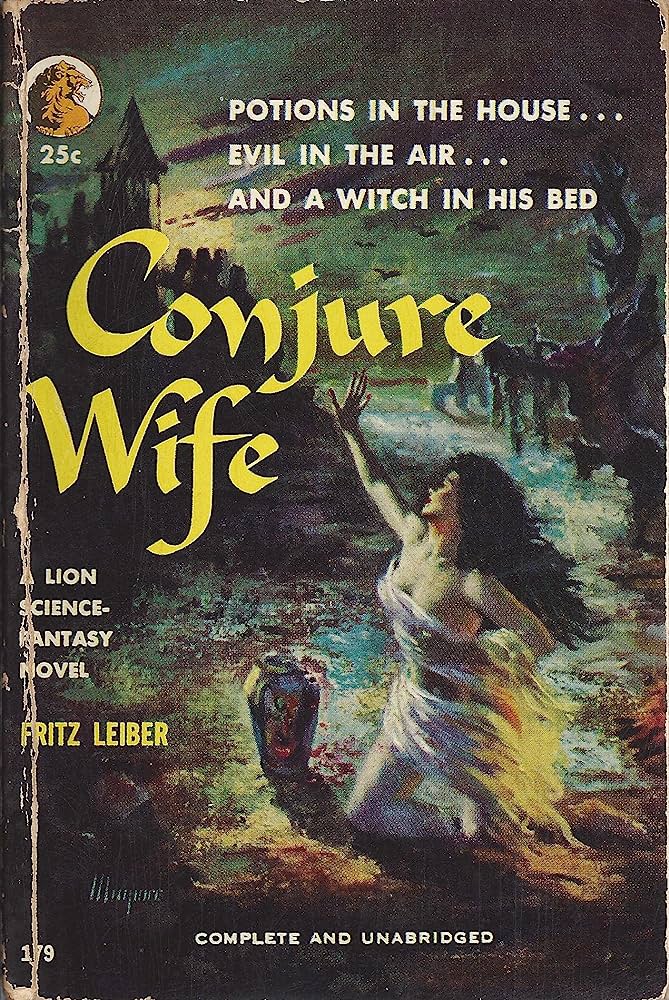
Conjure Wife (Fritz Leiber, 1943)
List: Jones/Newman
Norman Saylor is a logical, practical fellow with a bright future at the college he teaches at and a loving wife who supports him in every way possible. His reality is about to be shattered when he discovers that his wife Tansy has secretly been practicing witchcraft in order to protect him and further his career. After this shocking revelation, he forces Tansy to get rid of all the charms and totems she has cultivated throughout the years. What Norman doesn’t realize is that other women are conspiring against him and were awaiting just such an event to unleash Hell upon he and Tansy, body and soul.
I wasn’t eagerly anticipating this one given the lukewarm reaction I had to the last Leiber novel I read (Our Lady of Darkness), but I have to say, I enjoyed this one quite a bit more. The pacing is brisk. The pulpy elements are a lot of fun and even the basic premise of all women secretly practicing witchcraft, even mostly oblivious to one another, is amusing without being shockingly sexist. The book is structured almost like a video game with Norman Saylor forced to reckon with each of the villainous witches in turn, each one posing a bigger and bigger threat. It also had a nice aura of weirdness to it and a few twists and turns in the story to keep it interesting. Part of my enjoyment of this one could be attributed to the fact that I not only read the book but that I also recorded it for Librivox (with it somehow having fallen into the public domain due to the lack of a copyright renewal). If anyone is interested in hearing me read it, you can check it out here: https://librivox.org/conjure-wife-by-fritz-leiber/. Or if you find my voice horrible and want to absorb Leiber’s words as written, it’s also available for free as an e-book on Project Gutenberg: https://www.gutenberg.org/ebooks/70288. Regardless of how you read it, I do suggest checking it out, particularly if you’ve seen any of the film versions (Weird Woman (1944), Burn Witch Burn a.k.a. Night of the Eagle (1962) or Witches’ Brew (1980) ) and want to compare to the original. For my money, the 1962 version is the most faithful.
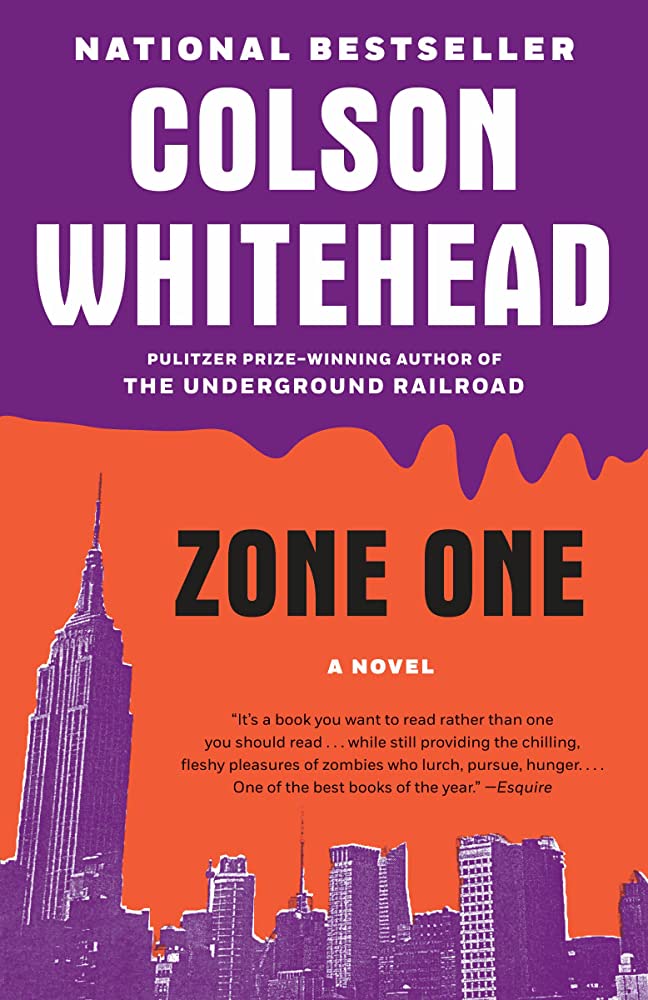
Zone One (Colson Whitehead, 2011)
List: Reedsy Discovery
Mark Spitz (not his real name but it’s the only one anyone knows him by anymore) is living in a post-infected world. Those infected either turn ravenously destructive or go catatonic. Mark is on a team of folks who are responsible for rounding up and dispatching the catatonic infected (dubbed “Stragglers”) in an effort to reclaim Manhattan block by block. As we follow Mark on his daily routine of rooting out stagglers, we also see flashbacks of Mark’s struggles in this changed landscape before arriving in The Big Apple. This settlement re-establishment project seems to be going well until things take a turn and Mark is plunged into an even greater peril than he has ever encountered before.
While the plot of this zombie novel is really nothing very new, what’s unique about it is that it is written by a bonafide Pulitzer Prize winner (Whitehead won the award for both The Underground Railroad and The Nickel Boys). I’ve always been fascinated by the line between those who dwell within the genre and those who dip their toe in occasionally. Both sides can produce excellent works. While Whitehead did write a science fiction novel early in his career (The Institutionalist), as of yet Zone One is his solo horror outing. It’s obvious early on that Whitehead is less interested in visceral thrills and more interested in how people live and reaction to the horror around them. This reminds me of more contemplative post-apocalyptic fiction like McCarthy’s The Road or Carey’s The Girl with all the Gifts. Whitehead’s prose is crisp and compelling, but the book feels deeply cynical, almost relishing in creating false hope only to pull it all apart over and over. Fans of the likes of the more propulsive Brian Keene or Jonathan Maberry may find themselves at times losing interest in the more banal elements of the narrative, but even for them the book offers a suspenseful, nihilistic third act that may please the more bloodthirsty zombie fiction fans. Overall, I liked Whitehead’s style quite a lot and am interested in checking out some of his other novels but found this particular book of his a little wanting. Everyone knows about the hopelessness of a zombie apocalypse but what you never hear about is the sheer tediousness of it too. Maybe there’s a reason for that…
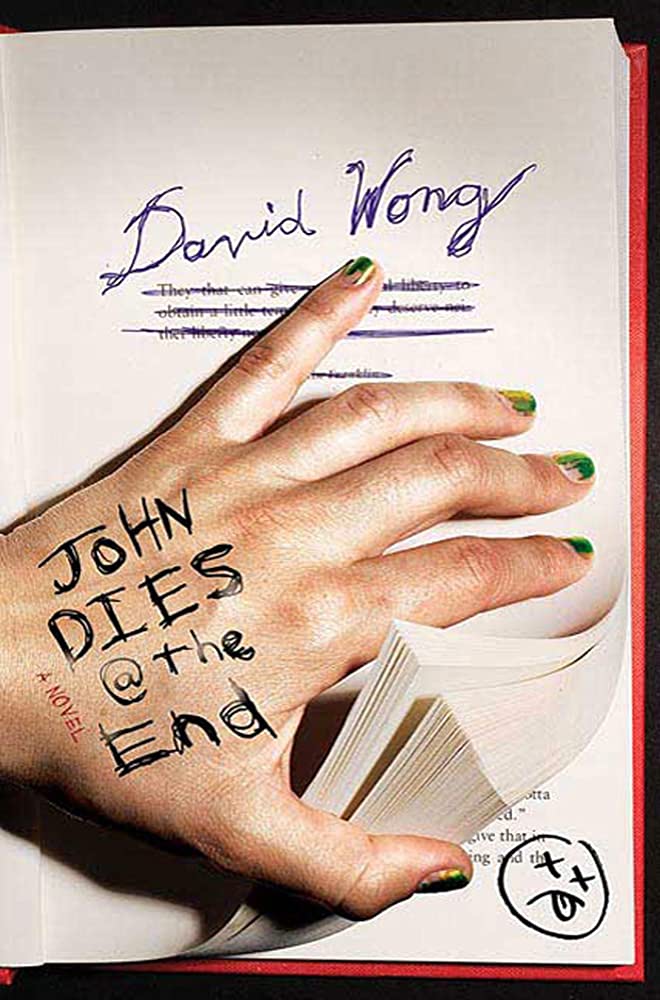
John Dies at the End (David Wong, 2007)
List: NPR
So David, John and a couple of other guys on the sauce get to Vegas and all Hell breaks loose. Oh, wait. That hasn’t happened yet. Did I talk about the sauce? The soy sauce? See, it has a way of folding the perception of time and space to your whim, making it possible to see the past, present and future all at the same time. Bad stuff is happening. There are monsters that defy description spilling into the reality we know. It all started (or at least it’s as good a place to start as any) while David is at a concert and meets up with a weird Jamaican guy who possesses a drug he calls “soy sauce”. John has taken the sauce. Dave ends up inadvertently being exposed to the sauce too. From that point, there’s no going back. John and Dave have to set out to fight eternal evil. At least, sometimes they do. Sometimes though David just wants to live his life with Jennifer Lopez (not the famous one) but once you take the sauce, you can’t un-take it.
Purported to be written by the main character of this story, “David Wong” (which isn’t even his real name in the story), this is actually from Cracked writer Jason Pargin. If you read Cracked back in the day when Jason was there, you know he can be very funny. And while this book isn’t really scary at all, it is very funny at times. The book doesn’t waste time throwing you head first into the wacky realm of manic frenzy this book traffics in right from the get-go as the story’s framing device involves Wong telling a journalist his story to try to get the word out about the impending doom coming. As Wong’s tale grows increasingly bizarre and unbelievable he is fortunately able to give the journalist some evidence to reinforce his story. The novel sways around in a somewhat rambling fashion, playing out in an almost episodic fashion with multiple climaxes (the book could’ve easily been split into two separate books with the first book ending after the big Vegas scene and the second book picking up after a time jump). Honestly though, the book is so much freewheeling fun that I didn’t mind its aimlessness too much. While this isn’t something I’d suggest if you’re looking for a truly horrifying read, if you want some lighter fare with a sarcastic, pop culture infused comedy tone, this one will fit the bill just right. I’m also looking forward to checking out the sequels as well.
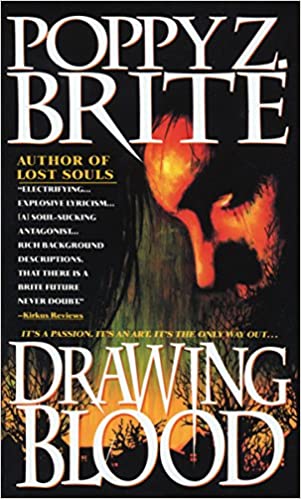
Drawing Blood (Poppy Z. Brite, 1994)
List: Reedsy Discovery
Trevor McGee was the lone survivor of a brutal scene of violence perpetuated by his underground cartoonist father Bobby McGee. This has left Trevor adrift in life, unable to comprehend why his father let him live while viciously killing his mother and little brother before committing suicide. It’s this gnawing question that draws Trevor back to his hometown of Missing Mile, North Carolina 20 years later where he takes up residence once again in his childhood home. He too is now a cartoonist like his father and the house is providing a special kind of inspiration. Into his life comes Zach Bosch, a computer hacker on the run from the government who takes refuge in Missing Mile, a temporary stopover until he meets Trevor, and something about Trevor’s damaged vulnerability draws Zach to him. Together they are forced to faced down the ghosts of Trevor’s past. Will they find their way out of Trevor’s nightmare before history repeats itself?
I have to say, after both this and Exquisite Corpse, I really did Poppy Z. Brite’s descriptive yet concise prose style. While Drawing Blood is certainly something of a slow burn after its opening massacre, Brite is able to breath real life into her characters and locations, giving us a fully formed community without becoming overly wordy or exhausting. Trevor’s and Zach’s relationship feels real. Like other Brite characters, they are damaged but not broken and see something of that in one another. The third act also has some really creative ideas involving a nightmarish realm modeled after Trevor’s dad’s comics. Honestly I wish we got more of that. The book’s third act feels a bit rushed to be honest. It almost feels like it’s over just as it’s getting REALLY interesting. I also felt like Zach’s friend from New Orleans Eddie gets a bit of the short shrift, both in story beats and character development. In some ways, this structurally reminds me of Stephen King’s The Shining but with a pacing that could’ve used a little tweaking. Still, after reading two of Brite’s books (and a handful of short stories from various collections), I have to say I’ve been pretty impressed with what Brite has produced and look forward to the third of her books on the mega-list, Lost Souls.
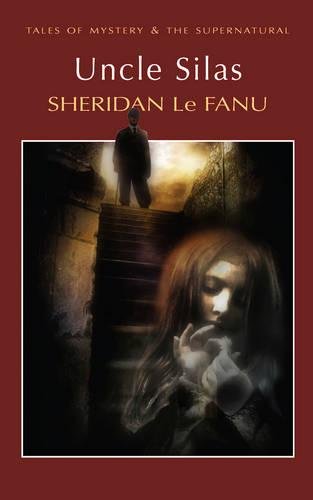
Uncle Silas (J. Sheridan Le Fanu, 1864)
List: Jones/Newman
Maude is a young woman living with her father at a large country estate where she hears from both her father and her cousin Lady Knollys of her reclusive uncle Silas, a black sheep of the family rumored to have had some dark stain upon his past. After her father’s death, Maude is left in the care of her uncle Silas via her father’s will, after Maude commits to her sickly father that she is willing to go through an “ordeal” to save her family’s name. Upon initially arriving at Silas’ estate of Batram-Haugh, Maude finds her uncle’s servants cold and unfriendly, her uncle seemingly nice but a bit icy and devoutly religious, her uncle’s son Dudley loutish and rude and her uncle’s daughter Milly kind but simple-minded. Maude eventually befriends Milly and takes comfort in her friendship. Meanwhile Dudley attempts to woo Maude which culminates in a proposal for marriage which Silas also tries to push on Maude. This is thwarted when it’s found that Dudley is already married, but Silas has only begun to set in motion villainous machinations that seek to rob Maude of her family’s fortune and possibly even her life!
This Victorian gothic thriller is perhaps one of Le Fanu’s most well-known novels (along with the lesbian-tinged novella Carmilla) which is why I imagine it was included in this list rather than some of his more overtly supernatural stories like “Green Tea” or “The Watcher” despite being more of a mystery chiller than outright horror. Like many Victorian gothics, this novel takes its time with the setup. A full third of the book nearly is spent on Maude living her father and exposing the snooping of Madame de la Rougierre, an ill-tempered governess in her father’s employ that Maude takes an immediate disliking to and who would come back into the story in the final third of the book. Even once Maude arrives at Silas’ estate, it takes quite a while before it even begins to make clear the ultimate arc of the story the crux of which involves Silas employing sinister plots to confuse, isolate and take advantage of Maude in increasingly terrible ways to get control of her fortune. While I’m not the biggest fan of Victorian literature in general and find it overly written and cloyingly melodramatic at times, I did find the final third of this book quite gripping and suspenseful as we feel the noose slowly tightening around Maude’s neck. This is definitely one that could have used a lot of paring down in the first half of this book. Overall, I didn’t find myself actively disliking it like another Victorian gothic, Wuthering Heights, but it’s still a far cry from what I would call a masterpiece of horror fiction either.

